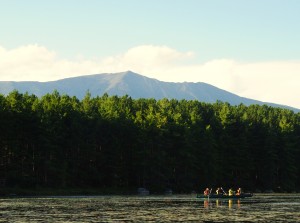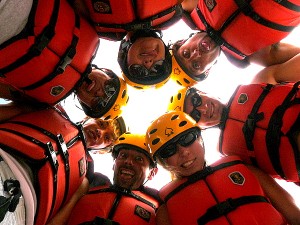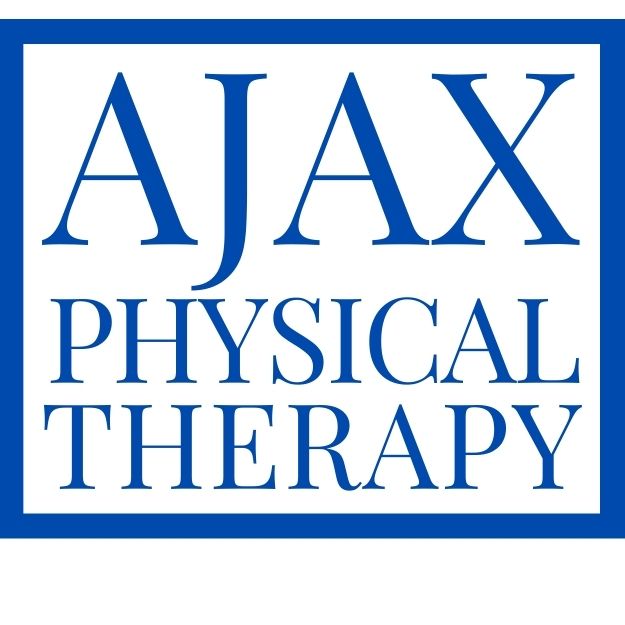This is part 2 of a 2 part blog on the job market and job finding in traveling physical therapy. Find part 1 here.
————–
For the last seven years, I have been working as a travel PT. What a job! Every few months, I tell my recruiter where I want to go, what practice setting I would like to work in, and a few weeks later I have a job that fits my criteria. …Or at least that’s how it worked until the past 6 months.

Key West, “Home of the Sunset.” Also, by car, it is about half way between Colorado and Maine.
My wife and I have been trying to find jobs in Southern Maine. We took our first shot at Southern Maine for the first half of the summer, but struck out. We were searching during a drive back to New England from Colorado, via Key West… a side-trip I recommend on any roadtrip. After we left Florida and were heading north through Connecticut, two possible job locations started to come together. Two jobs in Northern Maine and two jobs back in a sweet mountain town in Colorado. While turning around to head straight back to Colorado sounded like the most convoluted roadtrip ever taken, the chance to spend the summer playing in the mountains was pretty enticing. In the end, the Colorado jobs had one major flaw, Kate and I would be working opposite schedules and likely only have one day off together each week. What’s the point of travel PT if you don’t have the days off to enjoy your “home” town. To be honest, we weren’t psyched about heading to Northern Maine, but we recognized that it was the smart job to take – There were two jobs, they started on the day we hoped to start working, the location was relatively close to where we really wanted to be, and we were totally striking out on Southern Maine.
A couple blogs back, I wrote about our time in Northern Maine. The assignment turned out great. Goods jobs, good people, good times, but just a really, really far drive from everything. We had a few things working against us in looking for a job at the beginning of the summer. 1. We needed two jobs, not just one; 2. We only had active licenses in three states: Alaska, Maine, and Colorado; 3. We, as always, were pretty picky about our jobs.
There were a couple things we could have done differently to address our above weaknesses: 1. Nothing can really be done about us needing two jobs instead of one, it’s the only downside about traveling with a companion. 2. We could have kept more licenses active to expand the potential search area. We previously had Massachusetts licenses, but had let them lapse. If we had applied for New Hampshire licenses, we could have lived in Southern Maine and commuted across the border to New Hampshire; 3. We could have been more flexible about what jobs we would work. We turned down SNF jobs based on setting alone, if we were more willing to work in a greater variety of settings, we would have found work more easily.
By mid-July, we were back on the job search, hoping to start-up down in Southern Maine the Monday following our Friday wind-down up North. Got it?

Northern Maine sure is beautiful, it’s just really far from everywhere.
After a few weeks of searching for jobs, it wasn’t looking good, again. Friday came and went, we moved out of our rustic one room cabin in Northern Maine and headed down to our condo in Old Orchard Beach (OOB). We had hoped to spend the next several months living in the condo in OOB, but after 4-5 months of keeping an eye towards the Southern Maine travel PT market, it seemed like a job, nevermind two jobs, was going to be really hard to come by. It was time to pull out the stops. Along with our recruiters searching for jobs for us, we were conducting our own search for clinics that might not be willing to work with a staffing agency but that would entertain hiring an independent contractor. I’ve written in the past about finding independent contracts, but it wasn’t meant to be this time. A couple phone conversations with office managers and clinic owners yielded nothing. It seemed that just as a job would start to look promising, someone who was willing to sign on permanently would swoop in and take the position.
I try to stick with 2-3 companies that I trust to find me the assignments I want. But, in a situation like I was finding in Southern Maine, it was time to start calling around to the agencies further down the list. “Phishing” was something I rediscovered through calling recruiters further down my list. Phishing is when you see a posting online for a job, but when you call the company advertising the job, the job doesn’t exist. They say something like, “Oh, someone just took that job. Let me see what else I have in that area for you.” Bottom line, the job doesn’t exist, it never did exist, and they’ll post the same imaginary job online next week. They just want to get information on you and see if the can talk you into taking a different job. It’s dishonest and dirty.
Luckily, one lesson had been learned from the search through Southern Maine several months earlier. We might need to expand the search beyond Maine’s borders if jobs continued to be elusive. We had considered New Hampshire licenses, but New Hampshire has a longer process for licensure, and it didn’t seem like having our NH licenses would make all that many more jobs available to us anyways. We each had an expired Massachusetts license and a number of friends living around the Boston area. We had started the process of re-activating our Massachusetts licenses, but had several states to get verifications from before the licenses would be ready. While we waited for the licenses to come through, we shifted gears to focus on Boston instead of Maine. Quickly, we had some options popping up. On Kate’s first phone interview in Boston, difficulties continued. The interview started backwards. Kate was to call the facility, rather than the facility calling her – the way it usually works. After several minutes of trying to make the receptionist understand that she was calling in for a scheduled interview, Kate was asked to call back later. So, she did call back a few minutes later. This time, she was connected to the person she was scheduled to interview with, except he connected her to a supervisor who told her that they were not interested in hiring a traveler at this time. By far the strangest interview either of us has ever not had.
Within the following week, two jobs had been offered in the Boston area, but as always happens, opportunities in Maine were popping up at the same time. In the end, a decision had to be made and 1 bird in your hand is worth 2 birds that are not in your hand (or something like that), so we accepted the Boston jobs. It left us with a couple weeks off, but it was far better to know the job searching was done. So a couple weeks were spent doing a lot of work around our apartment, doing a lot of couch-surfing at friends’ places, and sneaking in some beach time. One last speed bump and work would start on Monday…
Thursday before we started work, a scare – Our Massachusetts PT licenses would not be ready until Tuesday and our new boss was threatening to cut off the assignment if the licenses weren’t in hand when we were scheduled to start work. A series of frantic phone messages to the MA licensing board, an email, and maybe even a fax somehow produced our licenses on time.

Our view of Boston from our new abode. I’ll be enjoying this view daily over the next 12 weeks…. guess we’re down to 9 weeks already.
…and that’s how we ended up working for the next 12 weeks in Boston. Our housing is another story for another day that also ends well, but the couch-surfing, or more accurately, futon-surfing, continued into the first week of work.
This post has dragged on much longer than I like, so it pains me to keep writing, but I believe this topic of the current job market is a very important one, and there are points to be made. I would like to discuss some highlights from the above story about how my wife and I finally got two jobs nearby where we wanted to be in what , locally, was a very difficult market. 1. We recognized a tough market locally and expanded our search methods through looking independently and using additional recruiters; 2. We were able to improve our possible job options by getting an additional state license and expanding our search area; 3. Even though the jobs we got didn’t start right away, we accepted them because we were willing to be flexible.
This whole post is about being flexible and opening yourself up to more opportunities. Carry extra state licenses, look with a couple recruiting companies, consider varied practice settings, and be willing to be patient for a couple weeks. Traveling physical therapy is a job that has a lot of upsides to it. We may be in a small dip in our employment options, but the market will recover quickly and there are currently numerous opportunities out there for anyone willing to be a little flexible. I hope that you can take some of these strategies, apply them to your own situation, and continue living the dream as a traveling PT.
I personally plan on reinstating more of my expired licenses to expand the possible jobs options. There’s a good job out there in a great location, open up your possibilities and allow yourself to find it.










